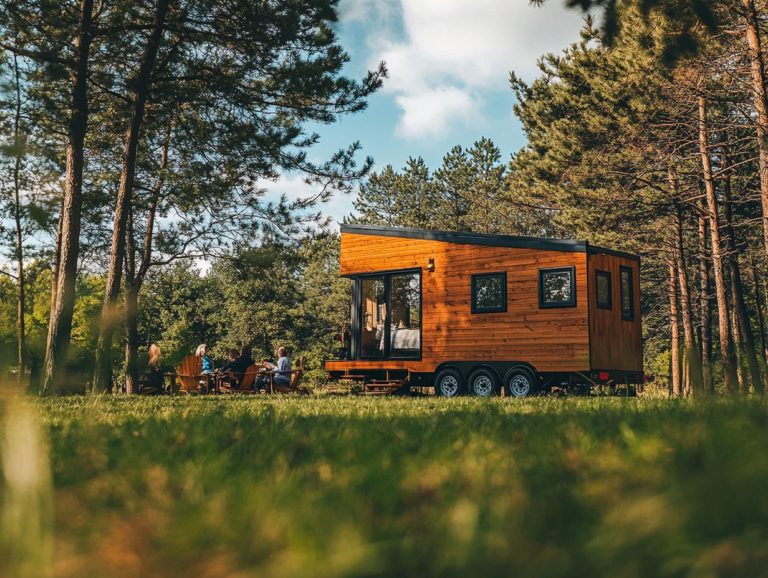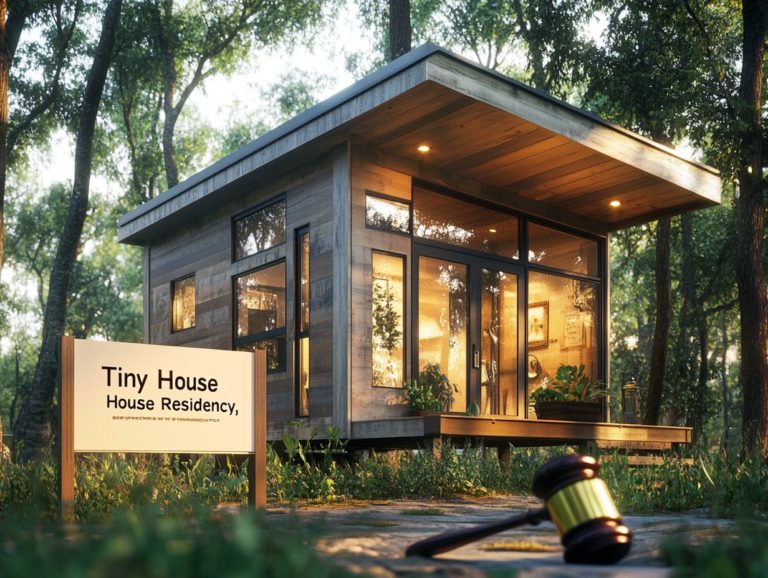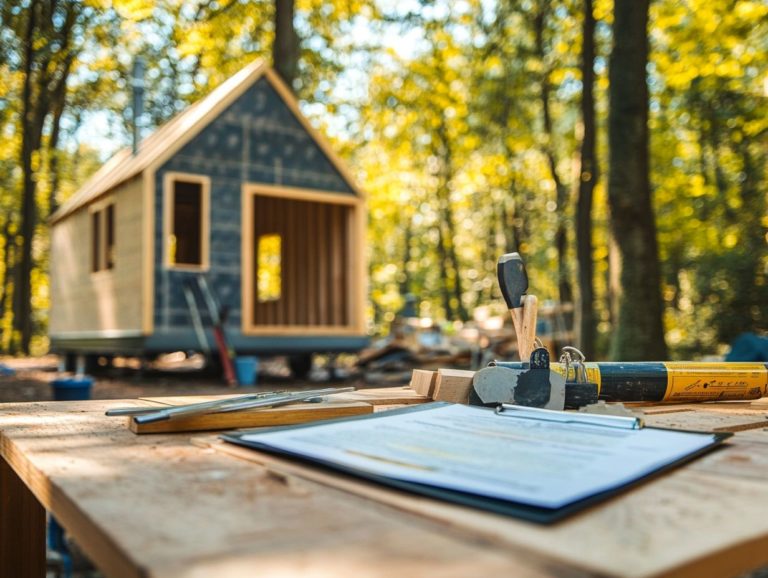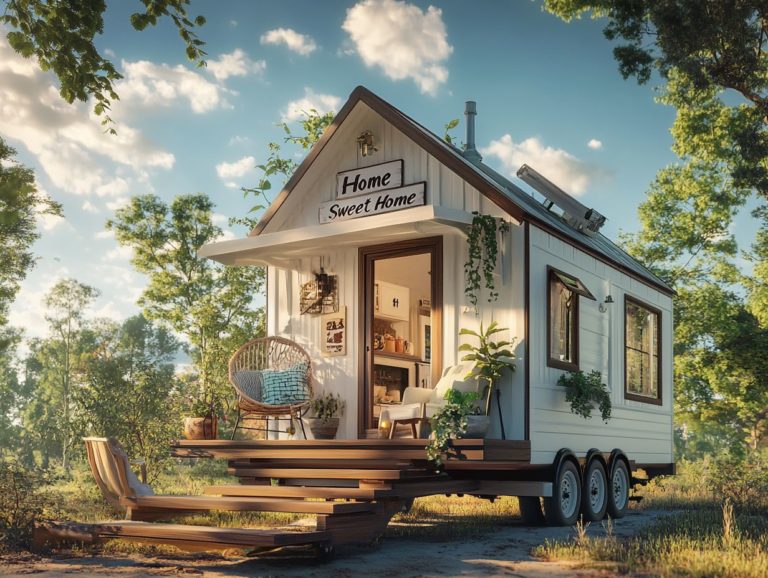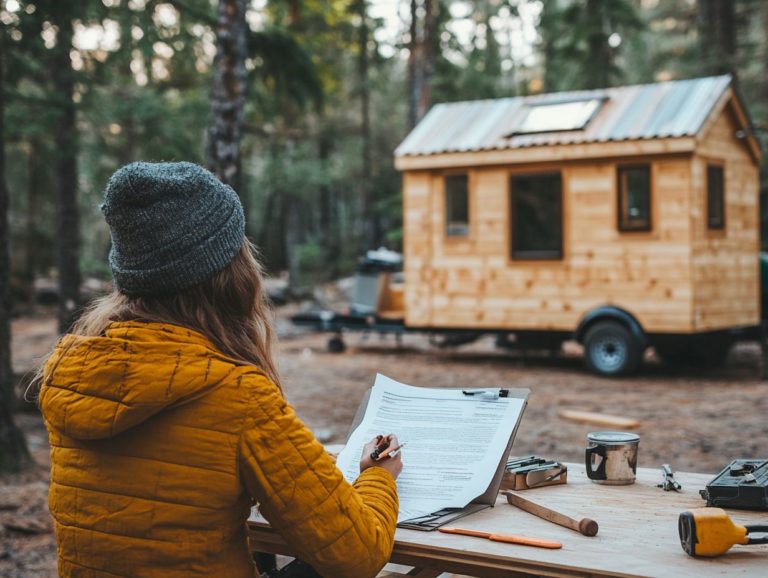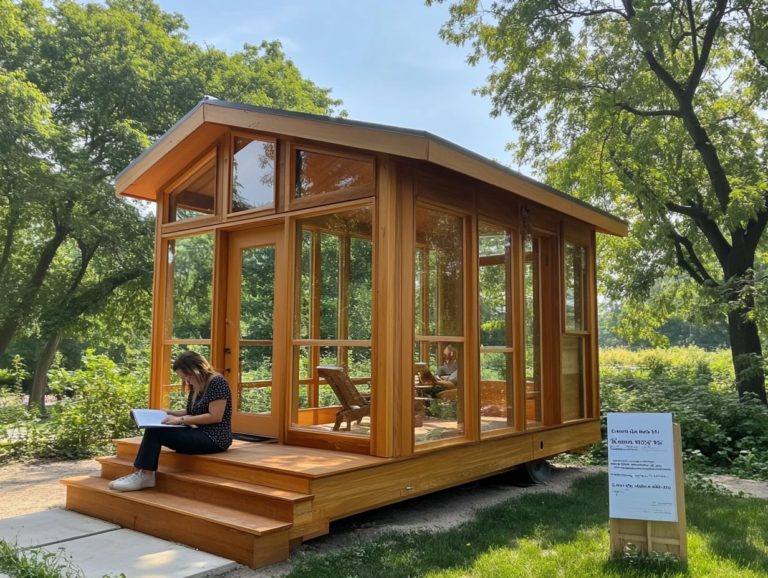Tiny House Legal Advice: Where to Start
In the realm of tiny homes, a captivating blend of freedom and creativity intertwines with intricate legal complexities. As you embark on your journey to downsize and simplify your life, understanding the details of tiny house laws and regulations becomes paramount.
From zoning and building codes to securing land and navigating legal hurdles, each step presents unique considerations. Get ready! This guide will help you navigate these regulations seamlessly, allowing you to fully embrace the distinctive lifestyle that tiny houses provide.
Contents [hide]
- Key Takeaways:
- Understanding Tiny House Laws and Regulations
- Researching Local Zoning and Building Codes
- Securing Land for a Tiny House
- Building a Tiny House to Code
- Navigating Legal Challenges and Obstacles
- Alternative Living Options for Tiny Houses
- Frequently Asked Questions
- What is considered a tiny house and why should I seek legal advice before starting a tiny house project?
- Do I need a building permit for my tiny house?
- Can I park my tiny house anywhere I want?
- What legal considerations should I keep in mind if I plan to live in my tiny house full-time?
- Are there any tax implications for owning a tiny house?
- What should I do if I encounter legal issues with my tiny house project?
Key Takeaways:

- Research local zoning laws and building codes to ensure your tiny house is legally compliant before starting any construction.
- Look into tiny house communities to potentially avoid legal challenges and obstacles.
- Securing land for a tiny house can be challenging, but options like land leases or purchasing land can provide a legal and stable foundation for your tiny home.
Understanding Tiny House Laws and Regulations
Understanding tiny house laws and regulations is essential for anyone thinking about the tiny home lifestyle, particularly in states like California, Florida, Texas, and even New York, where zoning laws and building codes can differ dramatically.
As the tiny house movement continues to gain traction, potential homeowners are increasingly navigating the complexities of residential districts. It’s important to seek insights into zoning classifications, square footage limitations, and the legal gray areas that might arise, especially in regions like Nebraska. Understanding tiny house land use laws can be crucial in this process.
Local laws about accessory dwelling units (ADUs), which are small homes built on the same property as a larger house, offer valuable options for establishing tiny homes in established neighborhoods, enhancing your overall tiny house living experience. Staying informed about the latest developments in tiny house licensing is crucial for making the most of your tiny living experience.
Overview of Legal Considerations
Legal considerations for tiny home living encompass various important factors, including building permits, fire safety regulations, and the often ambiguous legal gray areas surrounding tiny houses on wheels.
Pay close attention to zoning laws, which can vary dramatically from one municipality to another. This variability can complicate your quest for a permanent parking space, particularly in urban areas where every square inch counts. To navigate these challenges effectively, consider understanding the legal status of tiny houses.
International standards, such as the International Housing Law 2012, which sets guidelines for building safety, offer valuable guidelines to help ensure you adhere to global best practices in home construction. Fire safety measures, including the careful selection of materials and the installation of smoke detectors, are essential for enhancing safety in these compact living spaces.
Engaging with local authorities to navigate these various dimensions will prove invaluable for a seamless tiny home ownership experience, especially when considering tiny house movement and legal challenges for your project.
Researching Local Zoning and Building Codes
Researching local zoning and building codes is an essential step if you re considering joining a tiny house community or investing in a tiny home. Different areas come with their own unique regulations that dictate where and how tiny homes can be constructed or placed.
By understanding local zoning laws, you ensure compliance with regulations regarding square footage, ceiling height, and other building codes. This knowledge can dramatically influence the feasibility of your tiny home projects across various residential districts.
Start your tiny home journey today! Consider downloading our checklist for tiny house regulations to help you stay on track!
How to Find Relevant Laws and Regulations
Finding the relevant laws and regulations for tiny houses requires a careful look at local zoning laws and building codes, often resembling a journey through a legal labyrinth.
To navigate these complexities effectively, you can start by exploring official government websites, where municipalities typically post their zoning regulations and building codes. Local planning departments are invaluable; they can provide tailored insights and resources specific to your neighborhood, making them essential contacts for your tiny home project. For additional guidance, consider seeking out tiny house legal assistance to help you through the process.
Engaging with tiny house associations can offer guidance and advocacy, connecting you with individuals who have successfully navigated similar challenges. Understanding these tiny house regulations is crucial, as they impact the feasibility of your tiny home designs, placement, and overall compliance with safety codes.
Securing Land for a Tiny House
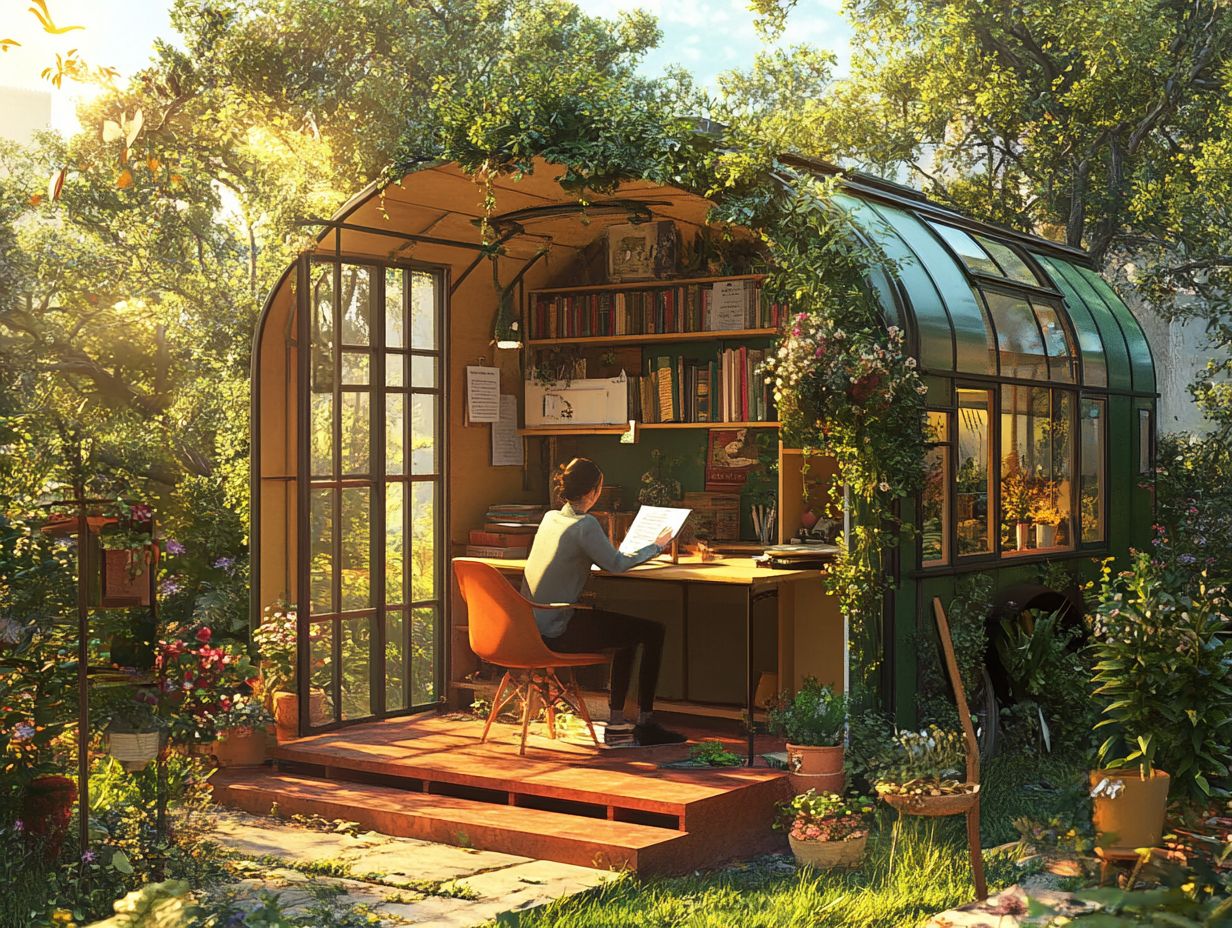
Securing land for your tiny house entails exploring a range of options, from purchasing a plot to considering the potential of building an Accessory Dwelling Unit (ADU) a small, secondary housing unit on a property in residential neighborhoods. This approach can greatly enrich your tiny house living experience, especially if you explore California tiny homes or Florida tiny homes.
You ll find that tiny home models are versatile enough to adapt to various land types, whether you choose a permanent foundation or a mobile setup. This flexibility allows you to align your living situation with your unique lifestyle and preferences.
Options for Finding Land
Jump into your tiny house adventure! Consider exploring the tiny home community, real estate listings, and local land sales.
Connect with local tiny home enthusiasts to uncover hidden gems that may not be publicly listed. By checking local real estate listings, you can gain a comprehensive understanding of available properties that cater to various buyer needs, including insights on tiny house legal challenges and how to overcome them.
It s crucial to take regional factors into account, as land availability and zoning regulations can vary widely especially in states like California, Florida, and Texas. For example, Florida might entice you with its tropical landscapes, while Texas could offer you more space at a lower cost.
When negotiating land purchases, research similar sales and come prepared to discuss terms that accurately reflect current real estate market conditions.
Building a Tiny House to Code
Building a tiny house to code demands a comprehensive grasp of local building codes and regulations that dictate home construction. This knowledge is essential to ensure that fire safety and structural integrity are maintained throughout the process.
Meeting Building Standards and Requirements
Meeting building standards and requirements is essential for your tiny house living experience. These regulations help keep your home safe, functional, and legally compliant with zoning laws, including those pertaining to fire safety.
As you consider downsizing, understanding the different rules of local codes, safety standards, and zoning restrictions becomes crucial. Different regions impose varying criteria, including minimum square footage, foundation requirements, and utility hookups. To navigate these complexities, it’s important to know the tiny house legal resources available. Failing to comply can lead to significant fines, forced removal of your structure, or even more severe penalties.
It’s wise to engage proactively with local authorities. Seek guidance on the necessary permits and inspections, and consider consulting professionals who can help streamline the process. For those interested in tiny house living, understanding legal myths can pave the way for a secure and sustainable living environment tailored to your lifestyle.
Navigating Legal Challenges and Obstacles
Act now to avoid potential setbacks in your tiny house journey. Navigating legal challenges and obstacles is something you ll likely encounter within the tiny house community, particularly regarding zoning laws. These issues can carry significant repercussions if not addressed properly, making it essential for you to stay informed and proactive in your approach.
Possible Legal Issues and How to Address Them

Possible legal issues you may encounter as a tiny house owner include disputes over zoning laws, building codes, and compliance with local ordinances.
These challenges can greatly impact your ability to find the best spot for your tiny home! You might also face difficulties related to waste management and utility hook-ups, which often go unaddressed in standard urban planning.
To navigate these legal hurdles, it s wise to consult with a real estate attorney who is knowledgeable about local rules. Consider joining community support networks that focus on tiny house living.
Resources such as the American Tiny House Association offer invaluable insights and legal assistance, empowering you to understand your rights and advocate for more inclusive housing solutions, including the importance of zoning in tiny house living.
Alternative Living Options for Tiny Houses
Alternative living options for tiny houses go beyond the conventional ownership models. You ll discover innovative concepts like tiny houses on wheels and community living arrangements that cultivate a genuine sense of belonging.
Considering Alternative Living Arrangements
Considering alternative living arrangements offers you a unique perspective on the joys of tiny house living, especially with options like mobile houses that provide an unparalleled sense of flexibility and freedom, echoing the sentiments of Mary Oliver.
Many individuals, perhaps like yourself, are increasingly drawn to this lifestyle. It invites the opportunity to downsize while simultaneously opening doors to vibrant community integration.
Take, for example, Airstream trailers; they not only offer portability but also evoke a delightful sense of nostalgia, allowing you to travel while feeling right at home.
On the other hand, fixed tiny homes, or permanent structures, nestled within eco-communities foster a genuine sense of belonging, where residents can share resources and provide mutual support.
If you lean towards a more contemporary aesthetic, container homes might catch your eye, effortlessly blending into diverse landscapes while providing a robust living space.
Each of these arrangements caters to various lifestyle preferences, making tiny living an alluring option for those seeking simplicity and authentic connection.
Frequently Asked Questions
What is considered a tiny house and why should I seek legal advice before starting a tiny house project?
A tiny house is a small, typically portable dwelling that is often less than 500 square feet in size. It is important to seek legal advice before starting a tiny house project because there are many regulations and laws that may apply to tiny houses. This ensures that your project is compliant with all relevant laws and regulations.
Do I need a building permit for my tiny house?
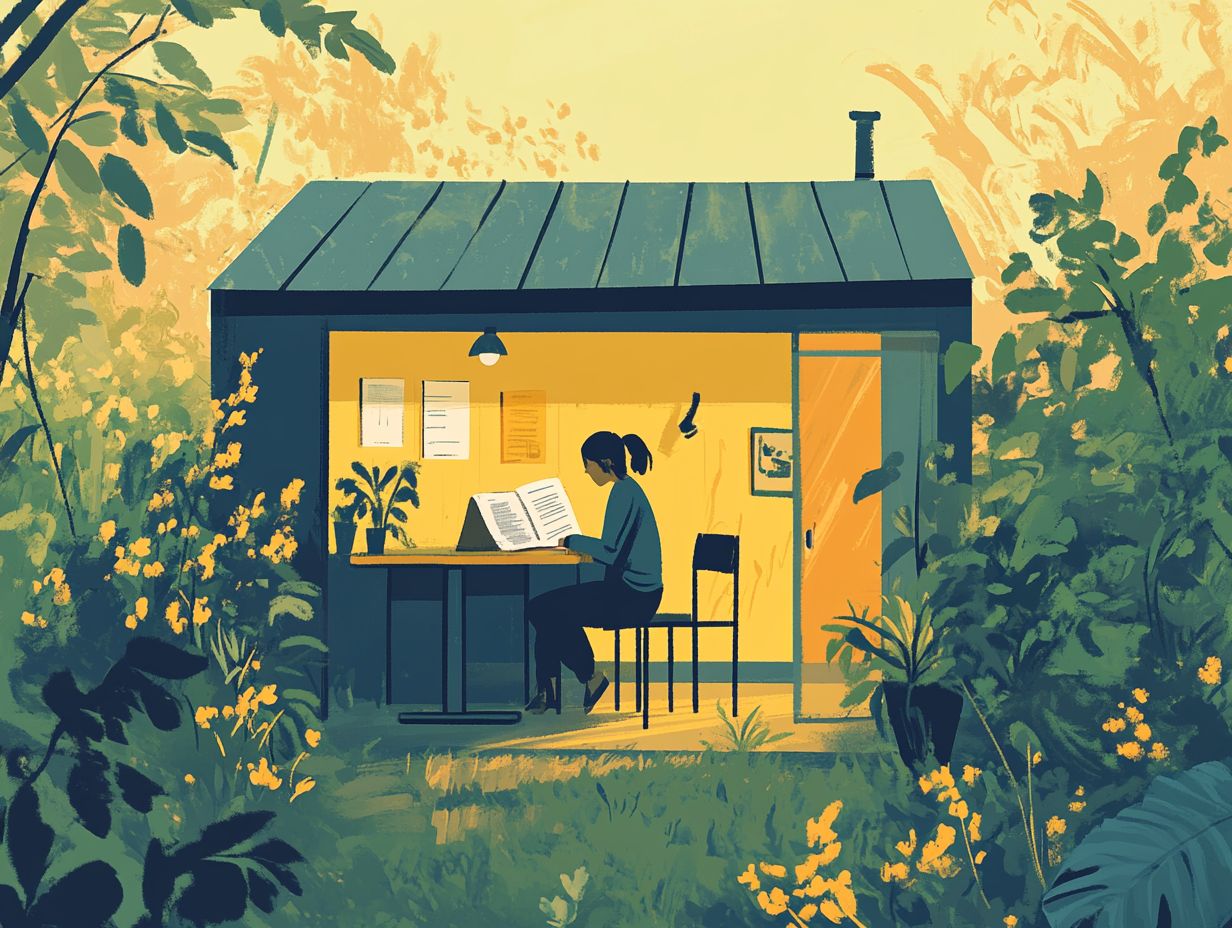
It depends on where you plan to build and where you plan to place your tiny house. In some areas, tiny houses are classified as recreational vehicles and do not require a building permit. However, in other areas, they may be subject to the same building codes and regulations as traditional homes. Be sure to consult with a legal professional to determine if you need a building permit for your specific project.
Can I park my tiny house anywhere I want?
No, you cannot park your tiny house anywhere you want. Zoning laws and regulations vary from place to place, so it is important to research and understand the regulations in your desired location. Some areas may allow tiny houses on private property, while others may require them to be parked in designated areas or on a permanent foundation.
What legal considerations should I keep in mind if I plan to live in my tiny house full-time?
Living in your tiny house full-time involves understanding local laws. This includes zoning laws, building codes, and utility hookups.
You might need special permits from your local government. Consulting a legal professional is crucial to ensure compliance with all regulations.
Are there any tax implications for owning a tiny house?
Yes, owning a tiny house can affect your taxes. Your tiny house might be classified as a recreational vehicle or a permanent dwelling, impacting the tax rates you pay.
To fully grasp these implications, talk to a legal and tax advisor before making decisions.
What should I do if I encounter legal issues with my tiny house project?
If legal issues arise, consult a legal professional immediately. They can help you handle challenges and ensure your project meets all legal requirements.
Seeking advice early can prevent bigger problems later on.

